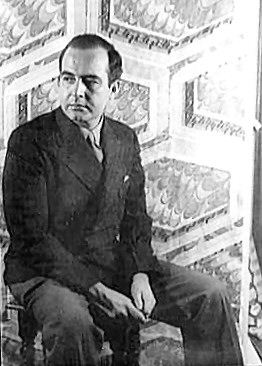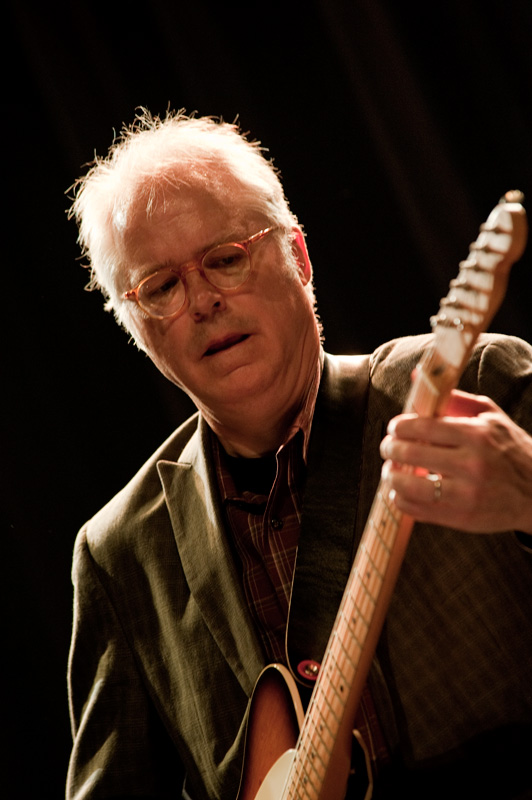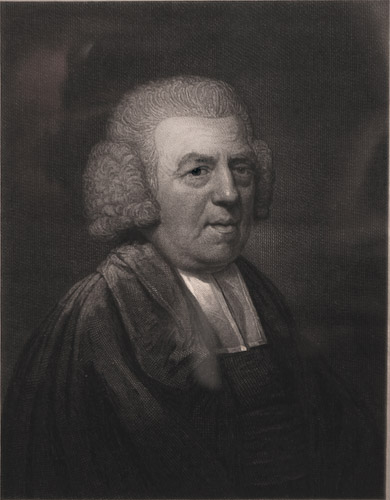|
Not In Our Name (album)
''Not in Our Name'' is a jazz album by bassist Charlie Haden, recorded in 2004 and released by Verve Records in 2005. The album is the fourth by Haden's Liberation Music Orchestra, the follow-up to ''Dream Keeper'' (1990). Reception ''The Penguin Guide to Jazz'' wrote that "It's respectful but with a certain impatience over the routine sentimentalization of these lovely tunes, particularly at a time when the country is again at war." Track listing #"Not in our Name" (Charlie Haden) – 6:19 #"This is Not America" (Pat Metheny, Lyle Mays, David Bowie) – 6:39 #"Blue Anthem" (Bley) – 7:49 #"America the Beautiful" (Medley) – 16:54 ##"America the Beautiful" (Samuel A. Ward) ##"America the Beautiful" (Gary McFarland) ##"Lift Every Voice and Sing" (James Weldon Johnson, J. Rosamond Johnson) ##"Skies of America" (Ornette Coleman) #"Amazing Grace" (John Newton / traditional) – 7:12 #"Goin' Home" (Antonín Dvořák) – 7:49 #"Throughout" (Bill Frisell) – 8:55 #"Adagio" (Sa ... [...More Info...] [...Related Items...] OR: [Wikipedia] [Google] [Baidu] |
Studio Forum Music Village
Forum Music Village (previously called Ortophonic Recording Studio) is a recording studio located in Rome, Italy underneath the Sacro Cuore di Maria. It was founded by Ennio Morricone, Armando Trovajoli, Luis Bacalov and Piero Piccioni with the studio manager and producer Enrico De Melis in 1969. The studio has some peculiarities one of them is the ability to record a church organ directly to the studio. Founder and Academy Award winner Ennio Morricone has been using the studio to create his scores for the past forty years. The studio has hosted many directors who have worked alongside him, including Brian De Palma, Oliver Stone and Barry Levinson. The Academy Award-winning scores of "Il Postino: The Postman" by Luis Bacalov and "Life Is Beautiful" by Nicola Piovani were recorded in Studio A of Forum Music Village. The studio has played host to international artists such as Quincy Jones, Placido Domingo, Andrea Bocelli, Red Hot Chili Peppers, will.i.am, Morrissey and Cher. The hi ... [...More Info...] [...Related Items...] OR: [Wikipedia] [Google] [Baidu] |
Pat Metheny
Patrick Bruce Metheny ( ; born August 12, 1954) is an American jazz guitarist and composer. He is the leader of the Pat Metheny Group and is also involved in duets, solo works, and other side projects. His style incorporates elements of progressive and contemporary jazz, latin jazz, and jazz fusion. Metheny has three gold albums and 20 Grammy Awards and is the only person to win Grammys in 10 categories. He is the younger brother of jazz flugelhornist Mike Metheny. Biography Early years and education Metheny was born in Lee's Summit, Missouri. His father Dave played trumpet, his mother Lois sang, and his maternal grandfather Delmar was a professional trumpeter. Metheny's first instrument was trumpet, which he was taught by his brother, Mike. His brother, father, and grandfather played trios together at home. His parents were fans of Glenn Miller and swing music. They took Metheny to concerts to hear Clark Terry and Doc Severinsen, but they had little respect for guitar. ... [...More Info...] [...Related Items...] OR: [Wikipedia] [Google] [Baidu] |
Seneca Black
Seneca may refer to: People and language * Seneca (name), a list of people with either the given name or surname * Seneca people, one of the six Iroquois tribes of North America ** Seneca language, the language of the Seneca people Places Extraterrestrial * Seneca (crater), a lunar crater * 2608 Seneca, an asteroid Water features in the United States * Seneca Creek (North Fork South Branch Potomac River), West Virginia * Seneca Creek (Potomac River), Maryland * Seneca Lake (New York), the largest of the Finger Lakes * Senecaville Lake or Seneca Lake, Ohio, a reservoir * Seneca River (New York), the outlet of Seneca Lake * Seneca River (South Carolina) Communities in the United States and Canada * Seneca, California, an unincorporated community * Seneca, Illinois, a village * Seneca, Kansas, a city * Seneca, Keweenaw County, Michigan, an unincorporated community * Seneca, Maryland, an unincorporated community * Seneca, Missouri, a city * Seneca, Nebraska, a village * Seneca, New ... [...More Info...] [...Related Items...] OR: [Wikipedia] [Google] [Baidu] |
Samuel Barber
Samuel Osmond Barber II (March 9, 1910 – January 23, 1981) was an American composer, pianist, conductor, baritone, and music educator, and one of the most celebrated composers of the 20th century. The music critic Donal Henahan said, "Probably no other American composer has ever enjoyed such early, such persistent and such long-lasting acclaim." Principally influenced by nine years' composition studies with Rosario Scalero at the Curtis Institute and more than 25 years' study with his uncle, the composer Sidney Homer, Barber's music usually eschewed the experimental trends of musical modernism in favor of traditional 19th-century harmonic language and formal structure embracing lyricism and emotional expression. However, he adopted elements of modernism after 1940 in some of his compositions, such as an increased use of dissonance and chromaticism in the '' Cello Concerto'' (1945) and '' Medea's Dance of Vengeance'' (1955); and the use of tonal ambiguity and a narrow use of ... [...More Info...] [...Related Items...] OR: [Wikipedia] [Google] [Baidu] |
Bill Frisell
William Richard Frisell (born March 18, 1951) is an American jazz guitarist, composer and arranger. Frisell first came to prominence at ECM Records in the 1980s, as both a session player and a leader. He went on to work in a variety of contexts, notably as a participant in the Downtown Scene in New York City where he formed a long working relationship with composer and saxophonist John Zorn. He was also a longtime member of veteran drummer Paul Motian's groups from the early 1980s until 2011 (upon Motian’s death). Since the late 1990s, Frisell's output as a bandleader has also integrated prominent elements of folk, country, rock ‘n’ roll and Americana. He has six Grammy nominations, and one win. Biography Early life and career Frisell was born in Baltimore, Maryland, United States, but spent most of his youth in the Denver, Colorado, area. He studied clarinet with Richard Joiner of the Denver Symphony Orchestra as a youth, but by his teens was more interested in guitar. H ... [...More Info...] [...Related Items...] OR: [Wikipedia] [Google] [Baidu] |
Antonín Dvořák
Antonín Leopold Dvořák ( ; ; 8 September 1841 – 1 May 1904) was a Czechs, Czech composer. Dvořák frequently employed rhythms and other aspects of the folk music of Moravian traditional music, Moravia and his native Bohemia, following the Romantic-era Czech nationalism, nationalist example of his predecessor Bedřich Smetana. Dvořák's style has been described as "the fullest recreation of a national idiom with that of the symphonic tradition, absorbing folk influences and finding effective ways of using them". Dvořák displayed his musical gifts at an early age, being an apt violin student from age six. The first public performances of his works were in Prague in 1872 and, with special success, in 1873, when he was 31 years old. Seeking recognition beyond the Prague area, he submitted a score of his Symphony No. 1 (Dvořák), First Symphony to a prize competition in Germany, but did not win, and the unreturned manuscript was lost until it was rediscovered many decades ... [...More Info...] [...Related Items...] OR: [Wikipedia] [Google] [Baidu] |
John Newton
John Newton (; – 21 December 1807) was an English evangelical Anglican cleric and slavery abolitionist. He had previously been a captain of slave ships and an investor in the slave trade. He served as a sailor in the Royal Navy (after forced recruitment) and was himself enslaved for a time in West Africa. He is noted for being author of the hymns '' Amazing Grace'' and '' Glorious Things of Thee Are Spoken''. Newton went to sea at a young age and worked on slave ships in the slave trade for several years. In 1745, he himself became a slave of Princess Peye, a woman of the Sherbro people in what is now Sierra Leone. He was rescued, returned to sea and the trade, becoming Captain of several slave ships. After retiring from active sea-faring, he continued to invest in the slave trade. Some years after experiencing a conversion to Christianity, Newton later renounced his trade and became a prominent supporter of abolitionism. Now an evangelical, he was ordained as a Church of ... [...More Info...] [...Related Items...] OR: [Wikipedia] [Google] [Baidu] |
Amazing Grace
"Amazing Grace" is a Christian hymn published in 1779 with words written in 1772 by English Anglican clergyman and poet John Newton (1725–1807). It is an immensely popular hymn, particularly in the United States, where it is used for both religious and secular purposes. Newton wrote the words from personal experience; he grew up without any particular religious conviction, but his life's path was formed by a variety of twists and coincidences that were often put into motion by others' reactions to what they took as his recalcitrant insubordination. He was pressed (navally conscripted) into service with the Royal Navy, and after leaving the service, he became involved in the Atlantic slave trade. In 1748, a violent storm battered his vessel off the coast of County Donegal, Ireland, so severely that he called out to God for mercy. While this moment marked his spiritual conversion, he continued slave trading until 1754 or 1755, when he ended his seafaring altogether. Newton ... [...More Info...] [...Related Items...] OR: [Wikipedia] [Google] [Baidu] |
Ornette Coleman
Randolph Denard Ornette Coleman (March 9, 1930 – June 11, 2015) was an American jazz saxophonist, violinist, trumpeter, and composer known as a principal founder of the free jazz genre, a term derived from his 1960 album '' Free Jazz: A Collective Improvisation''. His pioneering performances often abandoned the chordal and harmony-based structure found in bebop, instead emphasizing a jarring and avant-garde approach to improvisation. AllMusic called him "one of the most important (and controversial) innovators of the jazz avant-garde". Born in Fort Worth, Texas, Coleman began his musical career playing in local R&B and bebop groups, and eventually formed his own group in Los Angeles featuring members such as Ed Blackwell, Don Cherry, Charlie Haden, and Billy Higgins. In 1959, he released the controversial album ''The Shape of Jazz to Come'' and began a long residency at the Five Spot jazz club in New York City. His 1960 album ''Free Jazz'' would profoundly influence the di ... [...More Info...] [...Related Items...] OR: [Wikipedia] [Google] [Baidu] |
James Weldon Johnson
James Weldon Johnson (June 17, 1871June 26, 1938) was an American writer and civil rights activist. He was married to civil rights activist Grace Nail Johnson. Johnson was a leader of the National Association for the Advancement of Colored People (NAACP), where he started working in 1917. In 1920, he was the first African American to be chosen as executive secretary of the organization, effectively the operating officer. He served in that position from 1920 to 1930. Johnson established his reputation as a writer, and was known during the Harlem Renaissance for his poems, novel, and anthologies collecting both poems and spirituals of black culture. He wrote the lyrics for "Lift Every Voice and Sing", which later became known as the Negro National Anthem, the music being written by his younger brother, composer J. Rosamond Johnson. Johnson was appointed under President Theodore Roosevelt as U.S. consul in Venezuela and Nicaragua for most of the period from 1906 to 1913. In 1934, h ... [...More Info...] [...Related Items...] OR: [Wikipedia] [Google] [Baidu] |
Gary McFarland
Gary Robert McFarland (October 23, 1933 – November 3, 1971) was an American composer, arranger, vibraphonist and vocalist. He recorded for the jazz imprints Verve and Impulse! Records during the 1960s. '' Down Beat magazine'' said he made "one of the more significant contributors to orchestral jazz". A 2015 review of a McFarland DVD documentary called him "one of the busiest New York jazz arrangers of the 1960s". The review further stated that McFarland's "ascendance coincided with the rise of bossa nova, and McFarland was adept at translating the mercurial song form into orchestrations. He wrote some beautiful orchestral settings for great soloists, yet wasn’t immune to commercial forces." Life McFarland was born in Los Angeles, on October 23, 1933, but grew up in Grants Pass, Oregon. He attained a small following after working with jazz luminaries Bill Evans, Gerry Mulligan, Johnny Hodges, John Lewis, Stan Getz, Bob Brookmeyer, and Anita O'Day. As well as his own albums an ... [...More Info...] [...Related Items...] OR: [Wikipedia] [Google] [Baidu] |
Samuel A
Samuel ''Šəmūʾēl'', Tiberian: ''Šămūʾēl''; ar, شموئيل or صموئيل '; el, Σαμουήλ ''Samouḗl''; la, Samūēl is a figure who, in the narratives of the Hebrew Bible, plays a key role in the transition from the biblical judges to the United Kingdom of Israel under Saul, and again in the monarchy's transition from Saul to David. He is venerated as a prophet in Judaism, Christianity, and Islam. In addition to his role in the Hebrew scriptures, Samuel is mentioned in Jewish rabbinical literature, in the Christian New Testament, and in the second chapter of the Quran (although Islamic texts do not mention him by name). He is also treated in the fifth through seventh books of ''Antiquities of the Jews'', written by the Jewish scholar Josephus in the first century. He is first called "the Seer" in 1 Samuel 9:9. Biblical account Family Samuel's mother was Hannah and his father was Elkanah. Elkanah lived at Ramathaim in the district of Zuph. His genealog ... [...More Info...] [...Related Items...] OR: [Wikipedia] [Google] [Baidu] |







